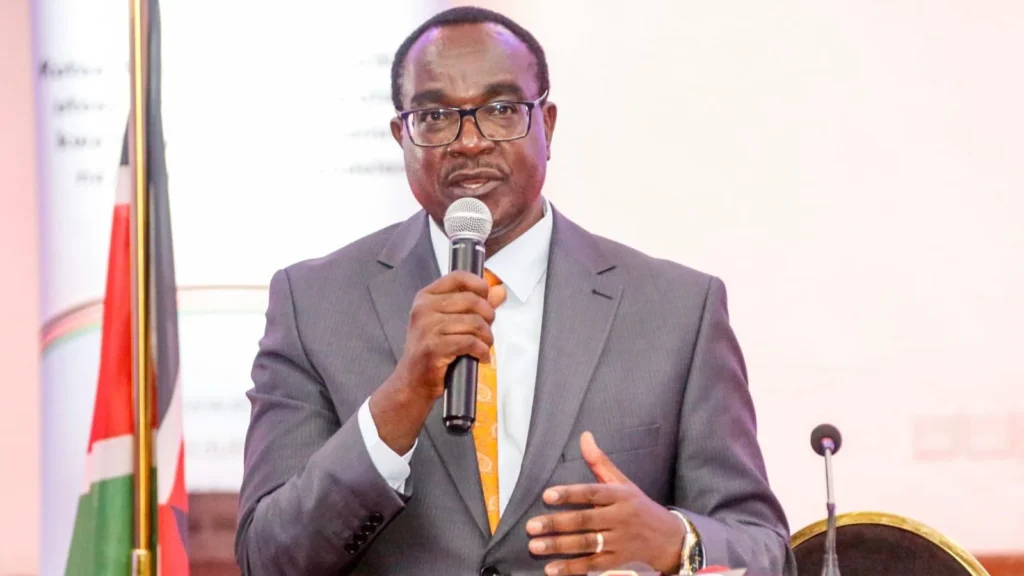Education Cabinet Secretary Julius Ogamba has reassured Kenyans that the government remains fully committed to providing free primary and secondary education, despite a worrying shortfall in capitation funding. His statement comes amid mounting concerns from school heads, parents, and legislators over the government’s inability to fully finance the Free Day Secondary Education (FDSE) programme.
Appearing before the National Assembly’s Departmental Committee on Education alongside Treasury CS John Mbadi, Ogamba acknowledged that the current funding levels have dipped below the approved Sh22,244 per student annually. He attributed the decline to budgetary constraints passed by Parliament, despite increased enrolment driven by the government’s 100 per cent transition policy.
“Free and compulsory basic education is a constitutional right of every child, pursuant to Article 53 of the Constitution,” Ogamba affirmed. “The government has neither the intention nor the power to abrogate this sacrosanct right.”
CS Mbadi, however, admitted that the state is only managing to disburse an average of Sh16,000 per learner, due to financial limitations. “Instead of the full capitation, we release 50 per cent, then 30 per cent, and finally 20 per cent. It is not enough,” Mbadi told the committee.
The statement followed an outcry from education stakeholders and MPs, who raised alarms over late disbursements, underfunding, and reports of funds being directed to non-existent schools. Emuhaya MP Omboko Milemba voiced concern over the disparity between policy and practice. “This is creating a crisis in schools. Let’s be honest with headteachers on what to expect,” he said.
Basic Education PS Julius Bitok also reiterated that free education policy remains unchanged and that the Ministry of Education will lobby Parliament to increase allocations and protect parents from additional burdens.
While Ogamba’s assurance is welcome, the mismatch between policy intent and fiscal reality has left schools struggling and parents anxious. The government’s commitment is clear but its execution now hangs on Parliament’s willingness to bridge the funding gap.

